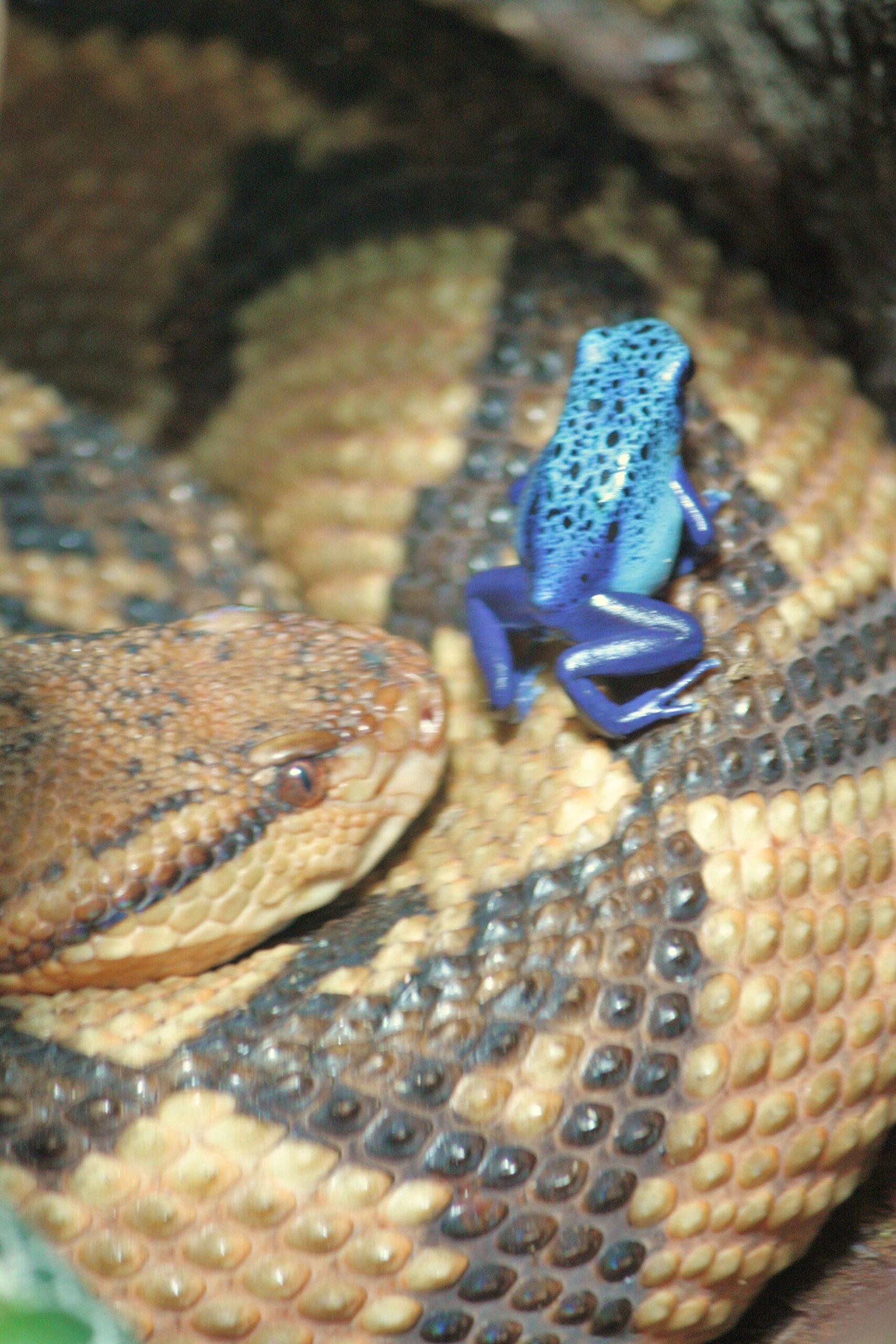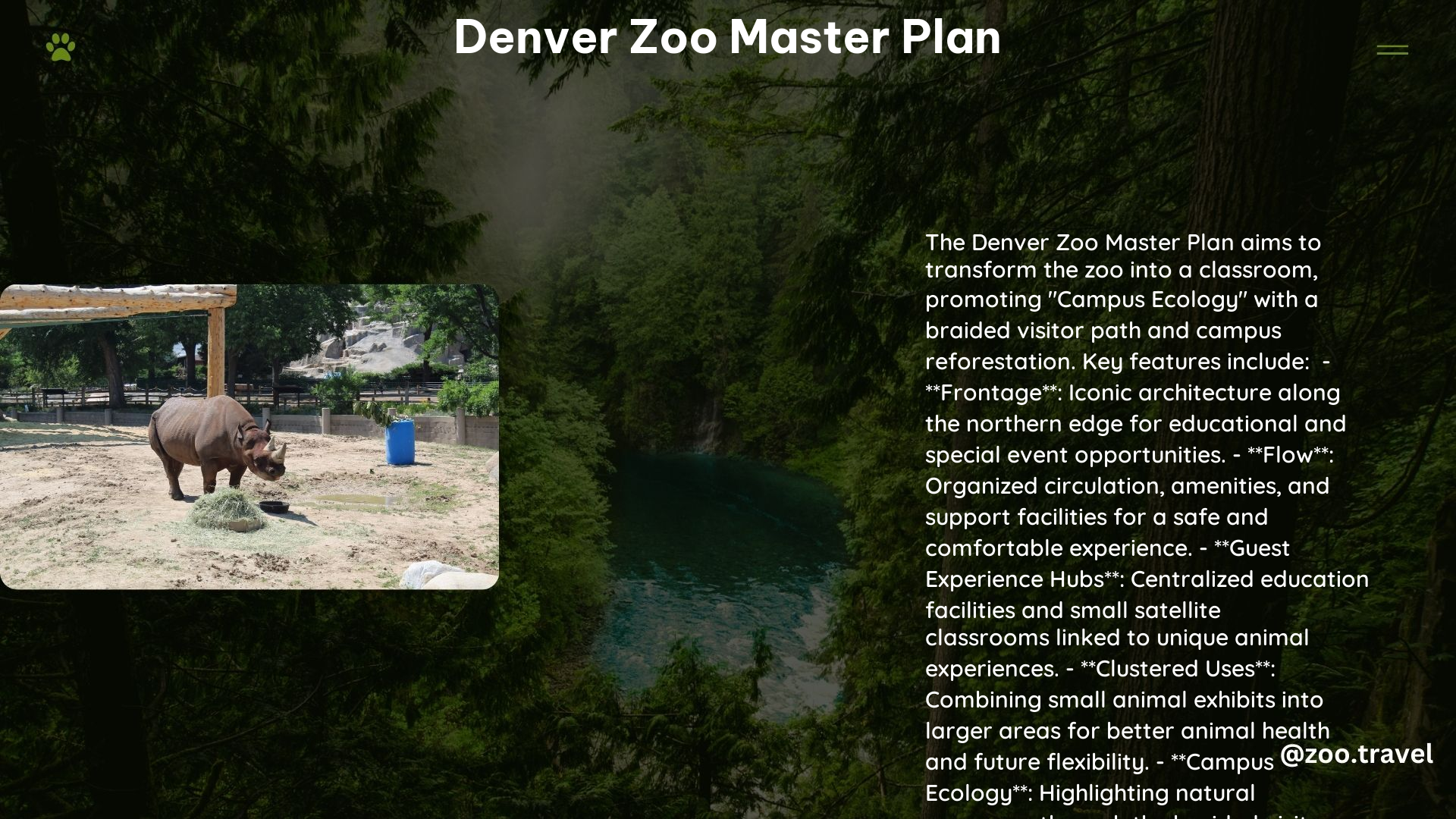The Denver Zoo Master Plan is a comprehensive strategy designed to guide the zoo’s development and growth while aligning with its mission, vision, and values. This plan outlines key components, strategies, and initiatives that aim to enhance animal care, improve community engagement, and promote environmental stewardship.
Key Components of the Denver Zoo Master Plan

Animal Care and Conservation
- State-of-the-Art Animal Hospital: The plan includes a $20 million, state-of-the-art animal hospital scheduled to break ground, supported by $10 million from the $937 million General Obligation Bond Denver.
- Expansion into Weld County: The zoo is expanding into a 570-acre facility in Weld County, nearly seven times the size of its 84-acre urban campus, to support Species Survival Plans (SSP) breeding efforts and provide space for growing animal families.
Education and Community Engagement
- Campus Ecology: The Master Plan aims to transform the entire zoo into a classroom, promoting “Campus Ecology” with a braided visitor path and campus reforestation.
- Centralized Education Facility: The plan includes a centralized education facility combined with small satellite classrooms linked with unique animal experiences throughout the campus.
Infrastructure and Facilities
- Facility Upgrades: The plan involves updating and expanding existing facilities, including the construction of a new animal hospital and the renovation of historic structures on the campus.
- Conservation Center: The zoo is also developing a conservation center focused on conservation breeding and reintroduction of species threatened or endangered in Colorado and other areas.
Sustainability and Environmental Stewardship
- Campus Ecology and Reforestation: The plan emphasizes “Campus Ecology” and sustainability, with a focus on natural processes and campus reforestation.
- Eco-Friendly Practices: The zoo aims to reduce its environmental footprint and promote eco-friendly practices throughout its operations.
Alignment with the Zoo’s Mission and Values

The Denver Zoo Master Plan aligns with the zoo’s mission to “Inspire Communities to Save Wildlife for Future Generations” by:
- Improving Animal Care: Enhancing animal welfare through modern facilities and innovative habitat designs, and supporting conservation breeding programs and reintroduction efforts.
- Educating and Engaging the Community: Providing educational opportunities and unique animal experiences to inspire visitors, and promoting environmental stewardship and sustainability practices.
- Conservation and Community Impact: Supporting global conservation programs and local community initiatives, and fostering partnerships with organizations and individuals to advance conservation goals.
Strategies for Animal Care and Conservation
The Denver Zoo Master Plan outlines several strategies to support animal care and conservation, including:
- Species Survival Plans (SSP):
- Expanding SSP breeding efforts to support endangered species.
-
Providing space for growing animal families and increasing holding capacity.
-
Conservation Breeding and Reintroduction:
- Developing a conservation center focused on breeding and reintroducing threatened or endangered species.
-
Collaborating with local and global partners to advance conservation goals.
-
Animal Welfare and Enrichment:
- Improving animal habitats and providing stimulating experiences for animals.
- Enhancing animal care through modern facilities and innovative practices.
Cost and Timings
- The new animal hospital is scheduled to break ground, with a cost of $20 million, supported by $10 million from the $937 million General Obligation Bond Denver.
- The zoo received city approval for admission-fee hikes of $2 to $3 per visitor to cover operational costs, projected to raise $1.5 million in the next year.
- The 570-acre facility expansion in Weld County is part of the zoo’s $75 million “Into the Great Wild Open” conservation campaign.
Directory and Hours
- Address: 2300 Steele St, Denver, CO 80205
- Phone Number: 720-337-1400
- Hours: 9:00 AM – 5:00 PM (daily)
Rates and Value
- Admission Fees: $20 – $30 per person (depending on age and residency)
- Annual Budget: $41.5 million
- Projected Revenue Increase: 3.7% from admission-fee hikes
